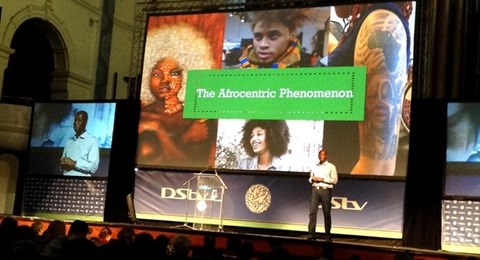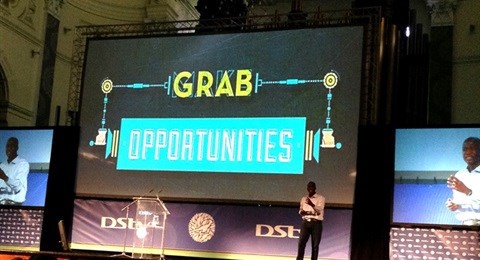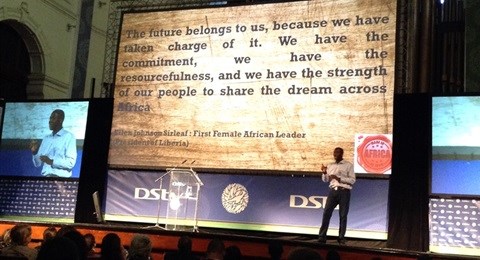Loeries 2014: Yaw Nsarkoh on the Afrocentric Phenomenon
When hearing the word Afrocentricity, it's quite obvious that it means putting Africa at the centre. But what does that mean practically and how would brands apply it? Nsarkoh explains that if a brand wants to become Afrocentric, and grab all the opportunities that the African continent poses, you have to put African people first - at the centre of what you do, try extremely hard to understand them, and then plan how to serve them in the best possible way.

Top takeaways
Here are some takeaways from Nsarkoh's talk on how to build deep-rooted, Afrocentric brands and why he believes Africa presents some great opportunities for brands:
- Look at the margins of society, spend time in the areas where you want to build a brand. Learn to understand the people and the culture and what makes them tick.
- Just spending time in focus groups and not actually going into a specific country or city, means that brands don't really understand the impulses that make people move. This is a challenge to all, but if we can harness it, we can build deeper roots in the African community and you are then engaging more and more with the margins of society.
- It should not be superficial and simplistic when you make assumptions about consumer culture, you should go about it in the most expansive way and embrace it.
- Seven out of 10 of the fastest growing countries in the world are on the African continent.
- Mobile and technology are growing extremely fast in Africa. In Nigeria for example there are 130 million mobile phones. In Lagos, the primary screens for 30% of the youth are smartphones.
- Brands must do well by doing good.
- The main thing is not to know about trends and statistics - it's about establishing what you as a brand are going to do about it. How are you going to grab the opportunity?

- Leave behind all your previous assumptions of a certain country or market and take on the challenge of humility. When you start to dig into different parts of society that you think you understood previously, you'll begin to see new lessons and insights emerge, you'll see that a lot of growth actually comes from the margins of society. For example, in Nigeria, it's easy to assume that in areas where people live in poverty and depravity, there are less likely to be creativity emerging. In reality, most of the new dance formats and trends that the youth are adopting are originating from the slums.
- You don't have to have an exclusive, new marketing plan for every African country you are planning to enter - that would lead to paralysis says Nsarkroh. Identity is a consequence of many variables: Of course there will be differences on a national level in each country, but it is possible to see commonalities in some countries. A mistake to avoid is to for example place your hub in Johannesburg, understand one market and try to project it on every other market. You will lose connection and you will be outplayed by local brands, who only focus and understand that specific market.
- You need to be in the marketplace for the purpose of improving people's lives. Look after the community, look after the people, and they will reward you with growth.
- If you understand the market, you will be able to improve the lives of people in Africa by providing solutions to problems that are commonplace. That is when brands can genuinely say that they are contributing to the resurgence of the African continent.
- Be open to learn from people who may not be as articulate, or be able to speak your marketing language.
- Afrocentricity includes all the sources of consumer culture. All sources of people cultures are important in building a brand, and organisations and communities of creatives must be in touch with all of them.
- Africa is currently in a much better place than it has been for for a while - this a major opportunity for brands.
- If you are going to wait until everything is sorted out in Africa before you are going to start to engage, you will lose out on many opportunities to build big brands and contribute in uplifting Africa.
He left the audience with a wonderful quote from the president of Liberia, Ellen Johnson-Sirleaf, who he acknowledged as an example of a strong leader and highlighted what Africa can become if brands start focusing on the opportunity rather than the challenge.

Bizcommunity's BizTakeouts TV crew caught up with Nsarkoh to chat about Afrocentricity, tailoring communication for Africa and the importance of mobile.








